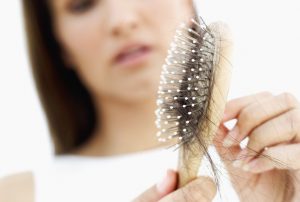Radiotherapy for Cancer
Managing Radiotherapy Side Effects
Common side effects
Fatigue
During a radiotherapy procedure, your body uses a lot of energy dealing with the effects of radiation on normal cells. Fatigue is the most common side effect of radiotherapy. Repairing damage to normal cells requires energy.
Daily trips to the hospital in order to receive treatment also add to this fatigue. You’re likely to feel sleepy, agitated and find it difficult to concentrate. Often appearing two to three weeks after radiotherapy starts, fatigue will gradually subside a few weeks after treatment concludes.
General fatigue requires no medication. Just reduce your workload, rest more and eat well. If you have difficulty getting to sleep, ask your doctor for a prescription instead of going for over-the-counter options. Unknown pills sold in drug stores may interact badly with radiotherapy.
- Adjust your schedule to get more rest.
- Only do tasks you’re capable of and take a nap from time to time.
- Eat well and drink more water.
- Take a walk, or do some light exercise.
- Ask those close to you to share your responsibilities.
Skin problems

Radiotherapy side effects may include dry and itchy skin around the treatment area. A few weeks after radiotherapy starts, the area where the beam enters the body may turn red, feel itchy, start peeling or form blisters (similar to the effects of sunburn). The extent of the reaction depends on the intensity of the beam, and how sensitive your skin is to radiation.
Skin problems usually go away two to four weeks after treatment ends, but some skin changes can be permanent. During treatment, these tips should help:
- Don’t use medicinal skin products bought in drug stores. Ask your doctor for suggestions.
- Avoid aromatic hygiene products such as soap, talcum powder, antiperspirant, skin lotion and perfume.
- Wear long-sleeves and put on a scarf, hat or umbrella when going outside. Protect your skin from direct sunlight and the wind.
- Wear loose clothes made of natural fibres. Avoid clothes with a tight collar.
- Shave with a razor instead of a blade.
- Give your breast more room after it receives treatment. If you have to use a bra, find a garment that’s one size bigger and contains no metal wire.
Hair loss

If you have hair in the area being treated (scalp, face or body), you may lose some or all of it during the radiotherapy procedure. You might start to lose hair a few weeks after the treatment starts. Hair on other parts of your body won’t be affected.
Hair loss affects appearance more than health. Some patients cut their hair short before treatment to avoid cleaning up hair that could be shed widely over the course of treatment. New hair will appear a few months after radiotherapy, but may not look the same as before. For example, once straight hair may become curly.
In the meantime, use a hat, scarf or wig to protect your head from the sun, wind and air conditioning. To match your natural hair colour, look for a wig before your treatment starts. If your eyebrows or eyelashes fall out, try cosmetic products (as recommended by your doctor).
- Protect the area where the beam enters and exits on your scalp. Gently pat it dry. Avoid hair dryers, gels or clips.
- Tell your doctor if the treatment area on your scalp hurts.
Loss of appetite / Weight loss
Eating healthily with a good variety of food is important when you are undergoing radiotherapy for cancer. A balanced diet is important for you to get the most from your treatment.
If you receive radiotherapy in the head and neck area, expect that chewing and swallowing might be difficult or painful. Mouth discomfort can make you lose your appetite, and eventually lose weight. If you don’t feel like eating, try prescription high calorie drinks.
If swallowing is a problem, a flexible tube can be inserted into your nose and down into your stomach to enable you to take on liquid food. If the problem persists, a feeding tube can be installed into your stomach through an opening in your abdomen.
- If you don’t feel like eating, try snacking often. Also, have nutritional supplement drinks in between snacks.
- Carry snacks with you at all times.
- Use whole milk to prepare soup and oatmeal.
- Use high-protein drink to prepare desserts.
- Add sugar, syrup, honey or glucose to your drinks and fruits.
Nausea and diarrhoea
If you have radiotherapy on your stomach or part of your lower abdomen, you may experience an upset stomach or diarrhoea. Radiotherapy near the stomach, or in combination with chemotherapy, can make you experience nausea or vomiting. This effect is generally mild and will gradually go away after treatment ends. Antiemetics may be prescribed for nausea relief.
Diarrhoea should go away several weeks after treatment ends. Tell your doctor if it doesn’t get better within this time. Antidiarrhoeal medication can be prescribed for relief.
- Eat nothing or only a bland snack such as toast or water for a few hours before your treatment.
- Instead of a full meal, try snacking little and often. Avoid spicy, greasy and fried food.
- Sip water regularly to make up for the fluids lost through vomiting.
- Use high-calorie drinks to make up for the loss of nutrients if necessary.
- Adopt a low-fibre diet.
Face, mouth, neck and upper chest problems
Radiotherapy is often used to treat cancers of the face, mouth, neck and upper chest. Depending on the area being treated, your mouth or throat may become dry and sore and your voice may become hoarse. These side effects are usually gone several month after treatment finishes. But it can be a permanent condition if your salivary glands are damaged during radiotherapy. You might also have difficulty swallowing due to a lump-like feeling in the throat and some phlegm.
- Suck ice chips and sip cool drinks, try to have more liquids and soft food.
- Avoid tobacco and alcohol (including mouthwashes containing alcohol) because they will cause your mouth to feel dry.
- If eating is uncomfortable or painful, notify your doctor and ask for medicine to relieve the pain.
- If your sense of taste changes during treatment, try different ways of preparing food such as including lemon juice on your meat and vegetables to enhance the taste.
- Your doctor can help you with these problems or get a referral for a speech therapist if you continue to experience challenges in swallowing.
Dental problems
If you are having radiotherapy to your mouth, your teeth will be more likely to decay. Discuss your dental care with your doctor before treatment starts. He or she can give you detailed instructions about caring for your mouth and teeth, to help prevent tooth decay and to deal with problems such as mouth sores.
Effect on sex life
Men and women usually find that radiotherapy to the pelvic area results in sexual intercourse to become uncomfortable and undesirable temporarily. Women may experience menopause-like symptoms, such as hot flushes, dry skin, dry vagina, irregular periods, or even no period. If you have these problems, you should tell your doctor or nurse.
Radiotherapy to the pelvic area can also cause a woman's vaginal tissues to less stretchy, making sexual intercourse painful. However, regular intercourse, the use of an instrument to expand the vagina (a dilator) and vaginal lubricants can stop the deterioration. For men, the fatigue caused by treatment combined with concern over the potential consequences of cancer can prevent them from getting an erection. Speak with your doctor about these issues and your concern.
Fertility
Radiation in the pelvic region can cause permanent infertility. Tell your doctor before treatment starts if you plan to have children to discuss how your treatment will affect fertility and discuss fertility preservation options. Bring your partner along, too.
Our Cancer Fund support centres have helped many people with regards to fertility. You’re welcome to pay us a visit or call us on 3656 0800.

Helpline
Tel: (852) 3656 0800
Donation Hotline
General donation:(852) 3667 6333
COF Monthly donation:(852) 3667 6332 
- Questions or comments: please use our comments page
- Donation enquiries: [email protected]
- Media enquiries: [email protected]
- Fundraising enquiries: see Get Involved



